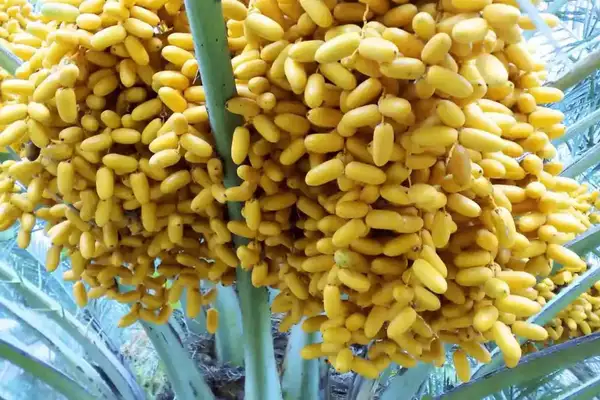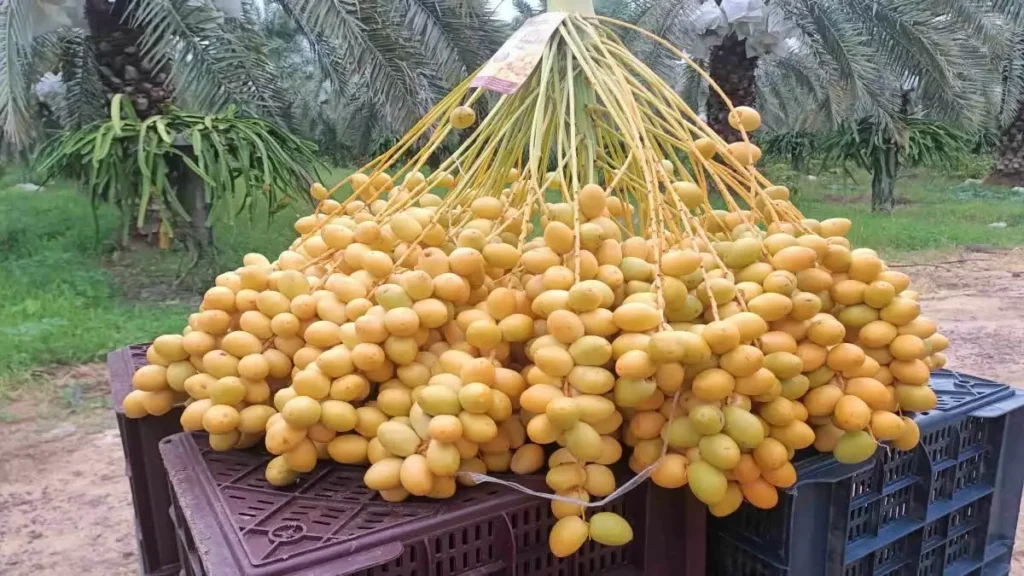Kachchhi Kharek, indigenous dates of Kutch, become Gujarat’s 2nd fruit to get GI tag.
About Kachchhi Kharek:
- Kachchhi Kharek, the indigenous variety of datesfrom Kutch, Gujarat, has been granted a Geographical Indication (GI) tag by the Controller General of Patents, Designs, and Trade Marks (CGPDT) of India.
- In 2011, Gir Kesar mango, cultivated in the present-day Junagadh, Gir Somnath, and Amreli districts of Saurashtra, became the first fruit from Gujarat to receive a GI tag.
- The presence of dates in Kachchh (Kutch) is believed to be around 400-500 years old.
- It is believed that date palm groves along the north-western border of India have developed from the seeds thrown by the settlers, who used to visit Middle-East countries for Haj and also for trade from where they brought a lot of plant material.
- It is also probable that the Arab gardeners working in the palaces of the former rulers of Kachchh might also have contributed to the import of the date seeds and offshoots from Arab countries.
Why did they receive GI tag?
- As seedling-propagated palms, each Kachchhi Kharek is a unique palm, showcasing a broad spectrum of diversity in its characteristics.
- Dates borne by these palms have diverse colours, size, shape, and taste, making the fruits grown in Kutch unique and hence eligible for a GI tag.
- Dates grown in Kutch are harvested at the khalal stage, the stage when fruits have matured, accumulated sucrose, and have turned red or yellow but are still crisp.
- In other countries, they are allowed to ripen further till they become soft and dark brown or black in colour.
- Kachchh is likely the only place globally where fresh dates are economically cultivated, marketed, and consumed.
- The region accounts for over 85% of total date palm cultivation in India.
Cultivation process:
- Date palms flower in January-February and kharek or fresh dates are harvested in June-July in Kutch where the southwest monsoon reaches later than other parts of Gujarat.
- These dates in Kutch have to be harvested at khalal stage as they can’t withstand moist weather.
Ref: Source
| UPSC IAS Preparation Resources | |
| Current Affairs Analysis | Topperspedia |
| GS Shots | Simply Explained |
| Daily Flash Cards | Daily Quiz |



